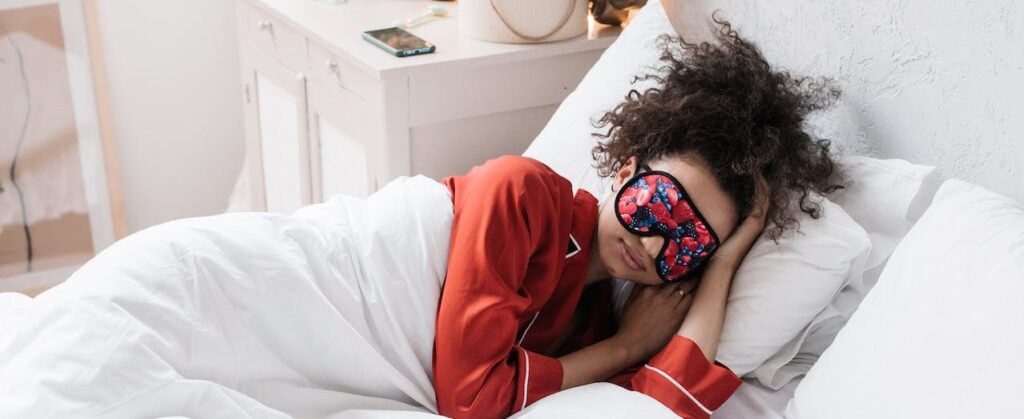By Marie Haaland // SWNS
NEWS COPY W/ VIDEO + INFOGRAPHIC
If you’re extroverted, love horror and fall asleep to TV or podcasts — you’re more likely to sleep in the buff.
A new survey of 2,000 Americans split respondents by those who sleep naked and those who prefer wearing pajamas, and it looked at differences in their personalities and their sleeping habits.
Those who sleep naked were also slightly more likely to be a night owl and were more likely to say they’re “very confident” than those who sleep in pajamas.
Not only that, but respondents who sleep in the nude were happier with their current sex life (62% vs. 48%) — and for those with a partner, they said it positively impacted their intimacy (72%).
Nude sleepers were most likely to have Cancer as a zodiac sign, while pajama wearers were most likely to be Capricorns.
Respondents who sleep in pajamas were more likely to watch drama and mystery movies, and they’re more likely to be early birds.
Commissioned by Avocado Green Mattress and conducted by OnePoll, the survey looked beyond the personality differences and delved into respondents’ sleeping habits — and results revealed much room for improvement.
Regardless of what they wear — or don’t wear — to sleep in, the average respondent wakes up feeling fully rested less than half the week.
Overall, respondents only feel rested three mornings per week, which is also the number of nights they fully sleep through in the average week.
Less than a quarter of respondents are “very satisfied” with their sleep quality (24%) — though people who sleep naked were more likely to be satisfied (30% vs. 22%).
“Deep sleep is fundamental to our wellness,” said John Davies, Senior Director of Brand Editorial and Sustainability at Avocado Green Mattress. “Whether you prefer to sleep au natural — or not — understanding what works best for you is an essential fulcrum for our health.”
Fifty-five percent of respondents who sleep naked said they get nightmares, compared to 44% of those who wear pajamas — perhaps having to do with their taste in movies, as those who sleep naked were bigger fans of horror.
That’s not the only thing impacting their quality of sleep — 30% of respondents believe what they wear to bed impacts their quality of sleep. And those who sleep in the nude were more likely to agree (39% vs. 26%).
Quality isn’t the only thing affecting how respondents choose to sleep: 29% of those who sleep naked said they do so partly to reduce their eco-footprint or energy use — for example, using less AC to keep their room cold while they sleep.
The survey dug further into respondents’ views of climate change and being eco-friendly.
Whether they sleep nude or in pajamas, respondents were almost equally concerned about the impact of climate change — and 57% of all respondents believe it’s important for the companies they support to be environmentally responsible.
“We all know the stakes couldn’t be higher with climate change,” said Davies. “It’s incumbent upon all of us to do our part to fight pollution, lower our carbon footprint and be intentional about our choices, including what we sleep on — or in.”
WHAT ARE THE DIFFERENCES BETWEEN THOSE WHO SLEEP NAKED AND THOSE WHO SLEEP IN PAJAMAS?
| Sleep naked | Sleep in pajamas |
| More likely to be Cancers | More likely to be Capricorns |
| Watch horror movies | Drama and mystery movies |
| Night owl | Early birds |
| More satisfied with their sex life | Less satisfied with their sex life |
| More likely to get nightmares | Less likely to get nightmares |
| More likely to believe their choice of sleepwear impacts their quality of sleep | Less likely to believe their choice of sleepwear impacts their quality of sleep |
Survey methodology:
This random double-opt-in survey of 2,000 general population Americans was commissioned by Avocado Green Mattress between Dec. 21 and Dec. 26, 2023. It was conducted by market research company OnePoll, whose team members are members of the Market Research Society and have corporate membership to the American Association for Public Opinion Research (AAPOR) and the European Society for Opinion and Marketing Research (ESOMAR).
